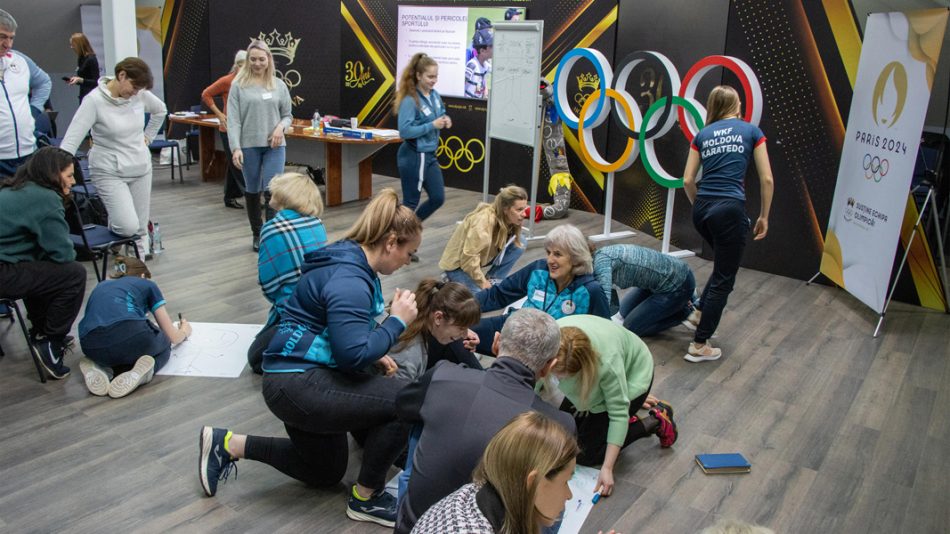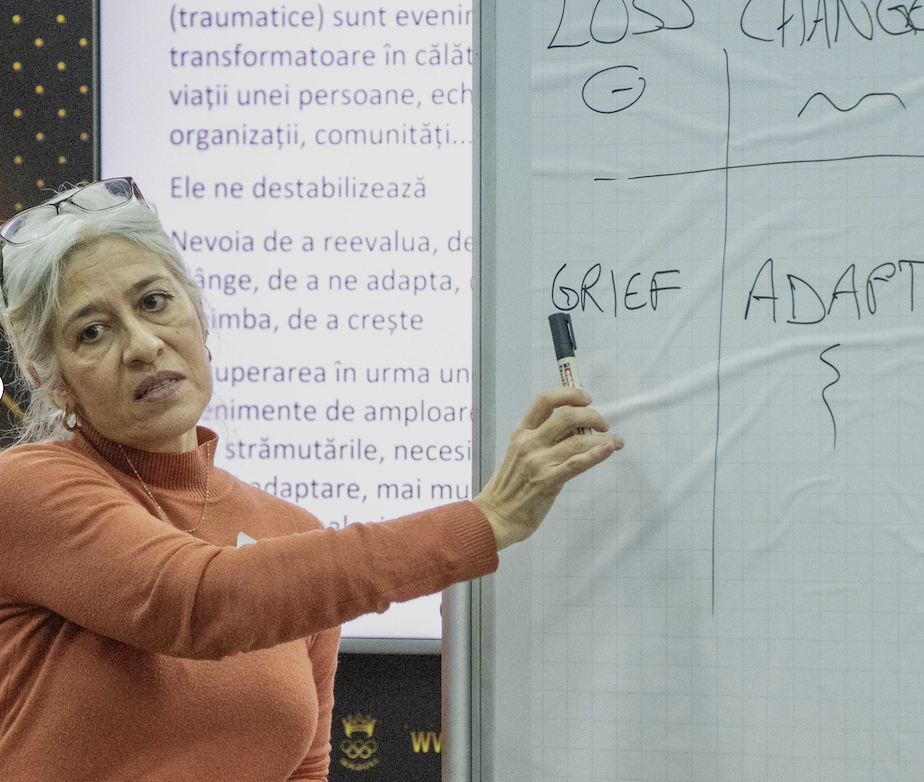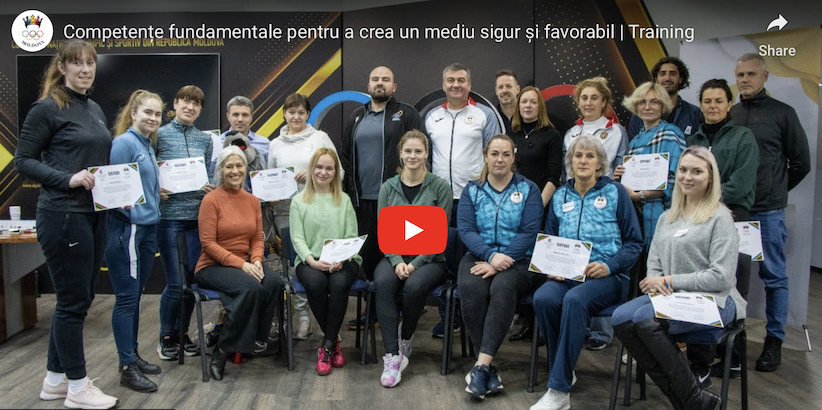The Olympic Refuge Foundation is using sport to support the mental health needs of refugees and displaced people

International Olympic Committee
20 Jun 2023 – As World Refugee Day focuses the world’s attention on the plight of the millions of displaced people around the world, the Olympic Refuge Foundation (ORF) is working to ensure that, when those who have experienced crisis access sport, they do so in a safe and supportive environment. The ORF was founded by the International Olympic Committee (IOC) in 2017.
Since late 2022, the ORF has been running a pilot initiative aimed at enhancing the foundational psychosocial skills of coaches, players, administrators and anyone involved in sports environments. The training draws on the principles and packaging of psychological first aid, adapted to sports contexts and scenarios, and trauma-informed sports coaching. At the same time, mental health professionals have been engaged to raise awareness of the evidence base on sport and the benefits for mental health and psychosocial well-being outcomes, and to encourage these professionals to consider the opportunities for linkages with the sports sector in their respective contexts.
The number of refugees and displaced people around the globe continues to surge. UNHCR recently announced that there were an estimated 110 million people who have been forced to flee their homes as a result of war, persecution, violence and human rights abuses. Forced displacement often results in stressful and traumatic experiences for those who have had to leave everything behind, all of which can negatively impact their ability to learn, cope and develop relationships. The World Health Organization (WHO) estimates that more than one in five people affected by conflict experience a mental health issue such as depression, anxiety or post-traumatic stress disorder (PTSD).
At the same time, there is growing evidence of the positive role that sport and physical activity can play in supporting mental health and psychosocial well-being. In order for the full benefits of sport to be realised, it is important that sport and physical activity are applied correctly, particularly when working with people who have experienced serious stressors or trauma. Sports coaches and physical education teachers must be sensitive to the experiences of refugees and displaced people, to ensure that physical activities effectively support mental health and counter feelings of stigma and discrimination.
Sport as an access point to support
In an effort to counter this ever-growing need for mental health support, the ORF has identified the unique position that coaches and physical activity facilitators are in to offer safe, supportive and healing-centred sports activities. As displaced people begin to settle in their host countries, many find their way to local sports clubs and sports facilities, which can serve as an entry point to other mental health and psychosocial support services they may need.


Dr Leslie Snider
Dr Leslie Snider, a member of the ORF Think Tank who worked with the ORF in developing and delivering the pilot programme, said: “the benefits of combining mental health and psychosocial support and sport are many. For one, sport is an important access point to reach young people who may need support, but might not know about or be comfortable accessing mental health services. Sport is something young people recognise and want to participate in, and so they are more likely to engage without the fear of stigma. Second, sport offered by trained coaches offers the opportunity for adult mentorship that can bring protection, stability and positive role-modelling for young people. Third, sport affords young people the chance to participate in activities that benefit not only their physical health, but also their mental health, relationships and building of life skills like cooperation and fair play.”
Working in partnership to deliver at scale
Working closely with partners like the Moldovan National Olympic Committee, the Polish Ministry of Sport and the WHO, the ORF has facilitated training for 65 sports coaches and physical education teachers, and 25 mental health professionals.


Screenshot. To view video click HERE
Initially trialled in Paris, the initiative is now being rolled out in Moldova and Poland, which have seen a large influx of displaced people from neighbouring Ukraine. While the initiative remains in its infancy, the pilot phase has demonstrated significant potential to scale. From the 35 sports coaches and physical education teachers trained in Poland, they have trained a further 510 professionals, who deliver sport to more than 50,000 young people – demonstrating the potential for a fully developed programme to reach a very large number of people.
Dr Snider added: “It was surprising to see the transformation of mental health professionals, who did not consider sport as something they could use in their work, wholeheartedly embracing it as important and impactful. Also surprising was how thirsty coaches were in all of the countries where we delivered the training for information about mental health, and how they can appropriately work with and support young people in their role as coaches.”
Going forward, the ORF will work in partnership with other organisations to ensure that the delivery of this model – which combines sports education and coaching with foundational psychosocial skills – reaches displaced people at scale.




